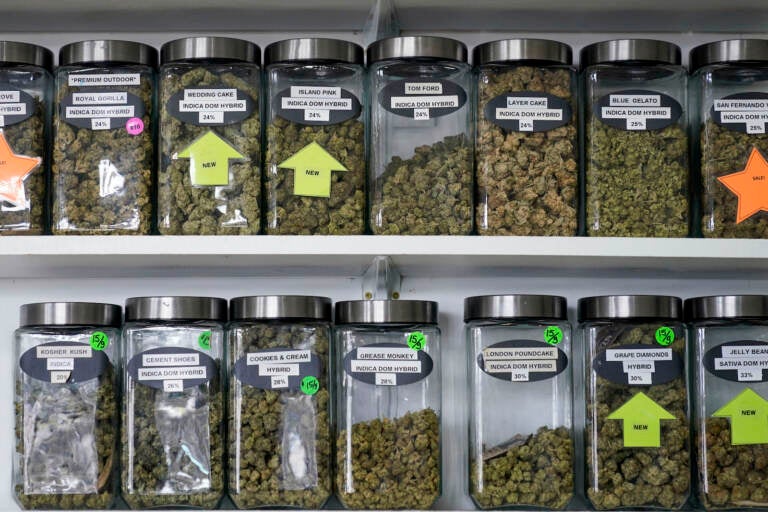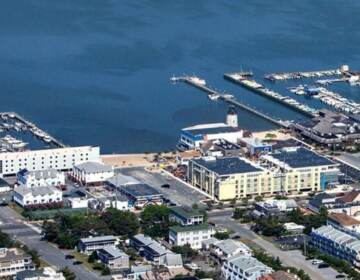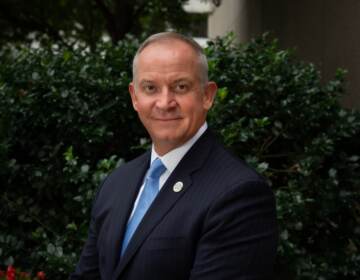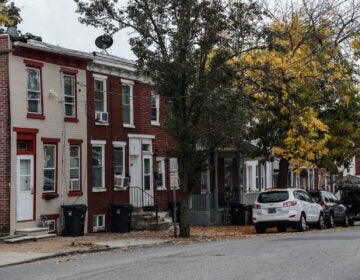Where should Delaware’s marijuana stores go? Sussex County considers legal options for areas outside of town limits
As Rehoboth considers following Dewey Beach in banning dispensaries, southern Delaware lawmakers consider county-level regulation.

Retail stores whose shelves are stocked with marijuana, like this one in New York state, won't open in Delaware until late 2024 at the earliest. (AP Photo/Seth Wenig, File)
Just three months after Delaware legalized recreational marijuana, some elected officials in Sussex County are exploring how they can regulate dispensaries within the county. While the law allows Delawareans to possess and even transport a “personal-use quantity” of marijuana, stores selling the product legally won’t be approved to open until next year.
Under Delaware’s marijuana legislation, towns can prohibit marijuana production and sales within their borders. County Administrator Todd Lawson says that the legislation’s language around counties allows them to regulate, but not necessarily ban, marijuana in unincorporated areas that fall under county jurisdiction.
“These types of facilities will be allowed in the unincorporated county areas,” Lawson said. “We’ve asked our legal staff to take a look at the bill and come back to council with a report on just what could be done if you have concerns related to marijuana facilities that could be established within the county jurisdiction.”
Under the law, Delaware’s three counties can set rules “governing the time, place, manner and number of marijuana establishment operations” outside of town limits. The law authorizes a total of 125 licenses for growing, manufacturing, testing and retails sales.
Dewey Beach has banned marijuana stores from opening within town limits, but that ban does not affect the area north of the town known as the “forgotten mile.” This unincorporated one-mile strip of Route 1 is home to condos and other residences as well as restaurants, bars, liquor stores, and other shops.
Dewey Beach city manager Ben Zolper said there has not been a discussion with Sussex County about marijuana being sold in the unincorporated area.
“We’re not really concerned about it,” Zolper said. “The law provides dispensaries to open up in areas it’s legal to do the dispensaries. Recently, in the town of Dewey Beach, we passed a code that would prohibit dispensaries in the town.”
The city of Rehoboth Beach, which sits north of the unincorporated portion of Rt. 1, has begun discussing marijuana bans. In a July 10 meeting, Commissioner Francis “Bunky” Markert said allowing dispensaries in the city might encourage people to drive from other towns to Rehoboth for marijuana.
“I don’t think we need that,” Markert said. “I think that would be better served by an establishment out on Rt. 1 or elsewhere.”
The Delaware Cannabis Advocacy Network, which was a major force behind legalizing marijuana in the state, opposes the bans. Delaware CAN president Zoë Patchell said the bans could result in dangerous behavior.
“Someone who’s been drinking in one of these notorious drinking towns like Dewey Beach that just banned cannabis businesses without legal cannabis sales in that town, a person will have three options: resort to illicit market that will continue to thrive in the towns that ban cannabis sales, or drive, or get a ride to the closest dispensary,” she said. “It seems like a lot to hope and expect that everyone will make the right decision and get a ride, especially if alcohol is playing a factor in that decision-making.”
Patchell wants to see the legal market outcompete the illicit market, and argues that municipalities and counties will continue to see an illicit market if they do not promote legal cannabis in their area.
“We think that these bans are shortsighted and make it less safe for both communities and consumers,” she said. “Cannabis prohibition is just as ineffective and as problematic as alcohol prohibition.”
No towns in Kent or New Castle County have announced bans at this time, nor have counties publicly expressed interest in controlling dispensaries.
The law authorizes 30 retail outlets, but they won’t be licensed until at least September 2024. Between now and then, state marijuana commissioner Robert Coupe is setting up his oversight office and establishing regulations to govern the industry. His office will eventually issue a total of 125 licenses to retailers, growers, and testing sites.

Get daily updates from WHYY News!
WHYY is your source for fact-based, in-depth journalism and information. As a nonprofit organization, we rely on financial support from readers like you. Please give today.






